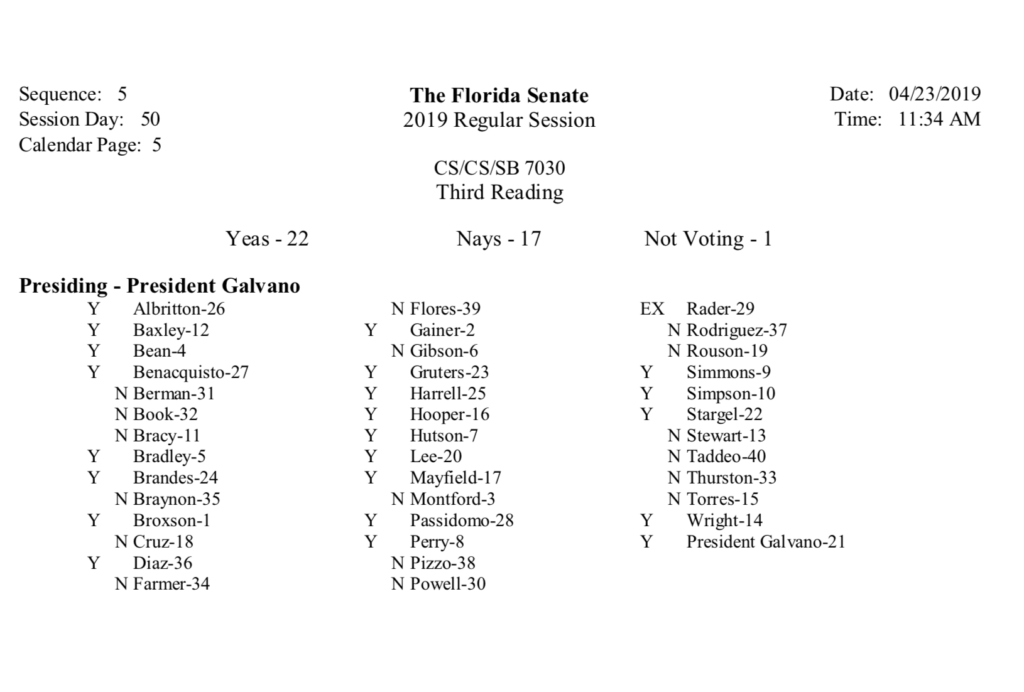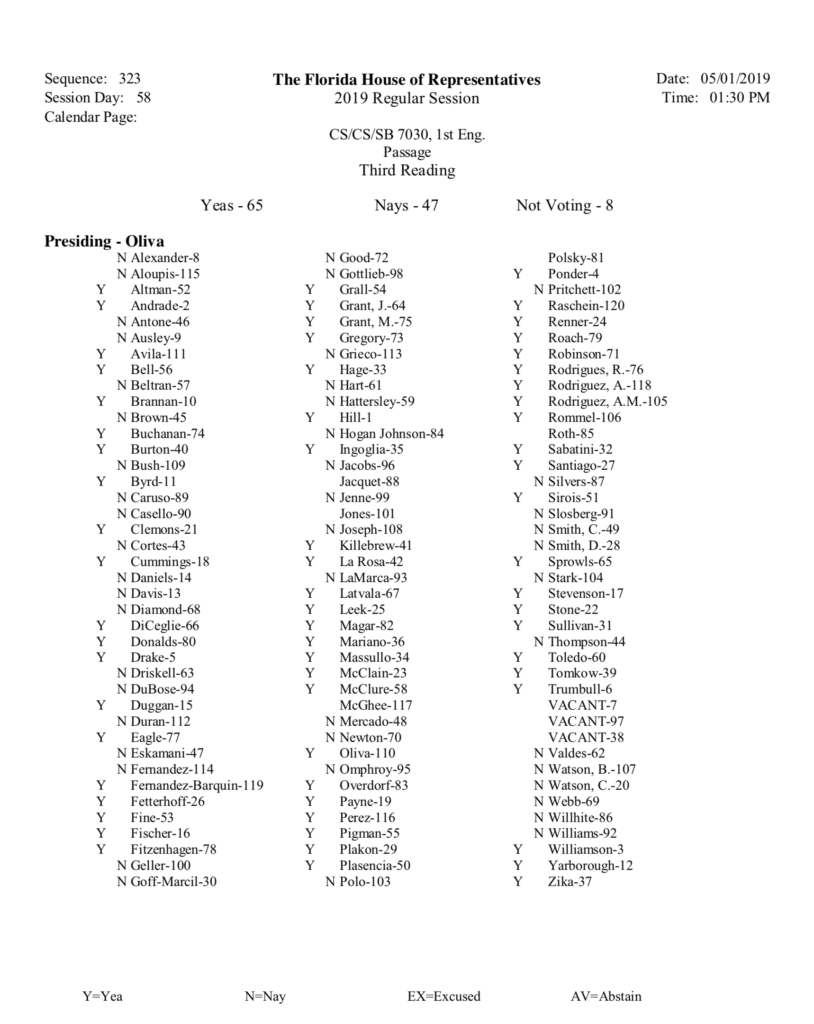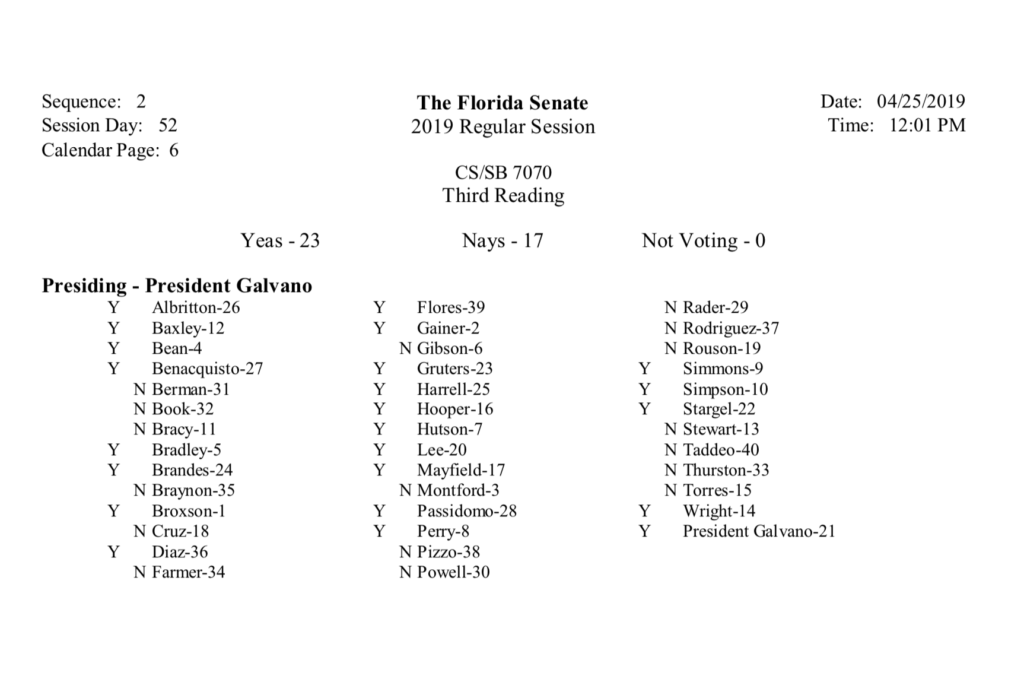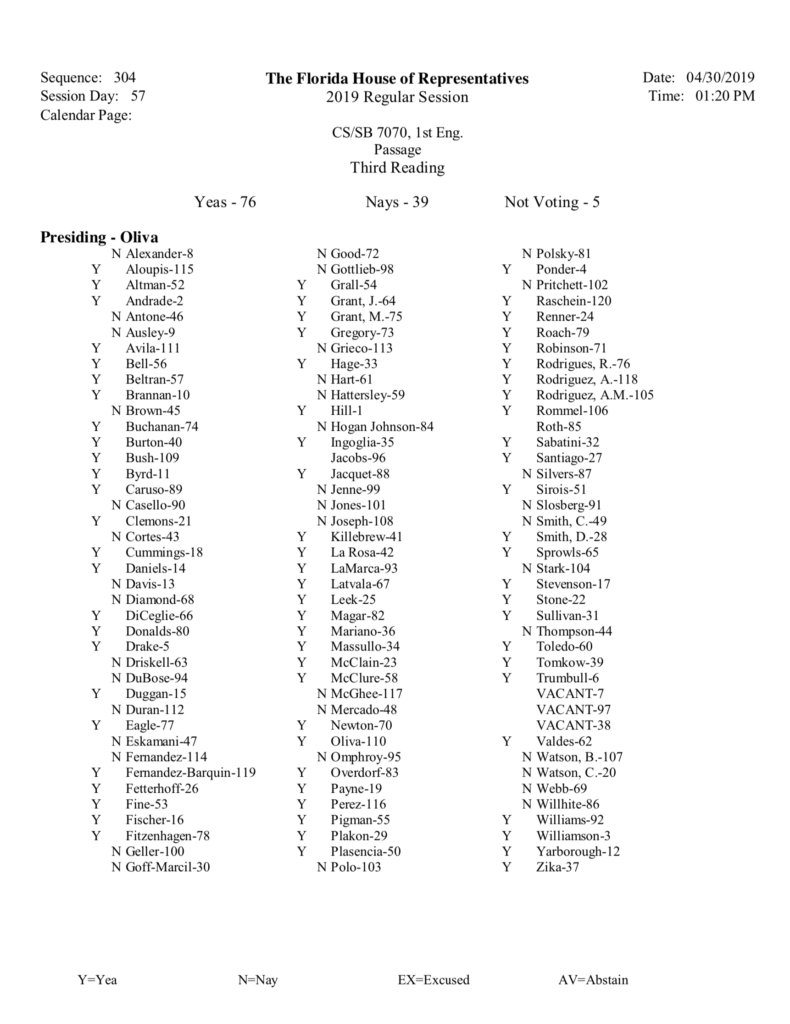Whack-A-Mole UpDate: The 2019 Legislative Session in Review
The 2019 Legislative Session is over. Corporate Ed Reformers are celebrating a “historic year for education,” while Public Education Defenders decry “the death sentence for public education.” Let’s revisit the Legislative Whack-A-Mole that was the 2019 Legislative Session:
Remember, with three new conservative Florida Supreme Court Justices, one who previously served as Betsy DeVos’ attorney, leadership appeared intent on pushing the envelope of privatization of public education and challenging Articles I and IX of the Florida Constitution, with little or no regard for the 2.7 million school children who are depending on the Free and Appropriate Public Education they are guaranteed by federal law. The 2019-20 budget actually allocates $250,000 for the Department of Education for “litigation expenses.” House Budget Chief Travis Cummings confirmed “that is for current as well as potential future lawsuits over the Legislature’s “bold” education laws.”
Just how much damage did they do?
More Guns: Expanding the Guardian Program
PASSED: SB7030, enacting the recommendations of the Marjorie Stoneman Douglas Public Safety Commission’s initial report, passed both chambers easily, despite 6 no votes from Republicans like Miami’s Anitere Flores and Vance Aloupis.
The most controversial aspect of the bill was the expansion of the Guardian Program, allowing the arming of classroom teachers who complete a specified firearms training program. Participation in the Guardian Program remains at the discretion of local districts, though charter schools are allowed to participate even in district’s declining to participate (lines 224-233).
SB7030 also address threat identification/reporting and school hardening, two very important discussions that have been completely overshadowed by the bill’s controversial expansion of the Guardian program to allowing the arming of teachers. The bill also gave the Commissioner of Education (currently charter school and voucher advocate, Richard Corcoran) authority to identify and sanction superintendents and school boards who have not satisfied requirements to “the maximum extent provided under law.” (lines 370-389) Such oversight authority could increase the micromanagement from Tallahassee and further erode local control of district schools.
Despite thousands of calls for a veto, the Governor quietly signed the bill into law on Wednesday.
Here is how lawmakers voted:


More “Choice” aka Privatization
PASSED: SB7070 , the Senate Train bill, created the new Family Empowerment Scholarship (Voucher) in FEFP, placed the funding of a new Best and Brightest bonuses, linked in part to school grade calculations, in FEFP, allowed a Hope Scholarship redo… this was the massive Senate Education train that pairs much needed school construction regulatory relief and the creation of Community School programs for struggling neighborhoods, with an ill-advised teacher bonus program (in lieu of increased funding for salaries) and a massive expansion of private school vouchers, to be funded directly from local property taxes. Read more here.
Despite concerns regarding the lack of academic accountability in Florida’s current voucher schools, the bill passed easily, with the help of a handful of democrats whose election campaigns had been supported by leading voucher advocates. Former Governor Jeb Bush flew in to watch the final vote, calling it an “Incredible day in Tallahassee to witness the passage of historic legislation that will usher in greater educational freedom for Florida families.”
Here is how lawmakers voted:


Vouchers weren’t the Only School Choice “Winner”
PASSED: HB7095 (Aloupis): Expanded Schools of Hope (enticing out of state charter chains to establish networks in Florida) and Florida Opportunity Zones, allowing funding for executive directors, regional directors, leasing… this was the massive real estate grab (at tax payer expense) that was outlined in Governor DeSantis’ implementing bill. The bill allows “Hope Operator” charter chains to open in “opportunity zones” regardless of whether the local public schools were failing… there are “Opportunity Zones” in EVERY school district in Florida, even the high performing, A+ districts. HB7095 greatly expanded potential locations for these so-called Schools of Hope charter schools. The Opportunity Zone language was amended into SB7070 and passed. (lines 510+)
Curriculum Changes:
With all the attention focused on privatization and school security, little attention was paid to bills addressing curriculum:
FAILED: HB195, filed by Representative Daniels, would have required all public (high) schools offer an elective course studying the Bible. The sponsor specifically did not want the course to include other great religious books or discuss comparative world religions. This bill passed the House PreK-12 Quality Subcommittee (11-3) and then died in PreK-12 Appropriations. It never had a Senate companion.
FAILED: Representative Hill’s HB855 (SB1454), written by the Florida Citizen’s Alliance (a group intent on suing local districts for “objectionable material” which they claim “indoctrinates” children and destroys “family values”), was watered down by amendments removing much of its initial focus on pornography and “deviate sexual intercourse” but still included increased regulatory oversight of supplemental instructional materials and sought to ensure the ability for the public to review (and then sue for their removal?) “library materials, books included on summer reading lists, and books available for purchase at book fairs.” HB855 was voted favorably in PreK-12 Quality Subcommittee (11-2) and then died in the Education Committee. SB1454 was never heard on the Senate side.
FAILED: Senator Baxley’s Academic Standards bill, SB330 would have required “Controversial theories and concepts” to be “taught in a factual, objective, and balanced manner.” The bill never had a House companion and was never heard in committee.
PASSED: SB1480 (Stargel)/ HB807 was fast-tracked near the end of session and passed both chambers almost unanimously, with the only NO vote cast by House Minority Leader, Kionne McGhee. The bill required the review of the current public school Civics standards, as promised by Governor DeSantis during his campaign. It specifically required civics instructional materials be reviewed and approved by the Commissioner of Education in consultation with groups which may include, but are not limited to, the Koch-funded Bill of Rights Institute, Hillsdale College (the college affiliated with the Classical charter schools associated with many of Florida’s conservative lawmakers), and several others. While the state is distracted by a curriculum review aimed at eliminating the “vestiges” of Common Core, this re-writing of Florida’s Civics curriculum, and associated state mandated assessment, will be something to be watched.
Career and Technical Ed:
PASSED: SB770/HB661 expanded career and technical offerings (which were eliminated when cash-strapped districts were required to focus on No Child Left Behind and other state-mandated testing requirements). These bills, in addition to establishing apprenticeship programs, etc., allowed certain industry certifications to replace requirements for basic science and math courses. While the need for Career and Technical Ed certainly exists, one should question whether allowing a student to substitute an “industry certification in 3D rapid prototype printing” for high school Geometry (even if it is “equivalent in rigor”) is wise for the long term career potential of anyone interested in 3D prototyping. The bills were incorporated into a massive Workforce Education Bill, HB7071 which passed both chambers unanimously.
Further Defunding of Public Schools:
PASSED: HB 5 (DiCeglie) would make it more difficult for local communities to pass school funding referenda by requiring 2/3 vote to authorize local discretionary sales surtaxes and mandating that such referenda must be held at a general election. The bill was amended to remove the 2/3rd requirement (reverting back to the current 60% threshold, definitely a “win”) and passed both chambers along party lines.
WITHDRAWN: SB562 – We are happy to say that Senate Education Chair Manny Diaz’s scheme to exempt certain homesteaded property owners, 65 and older, from paying taxes for local public schools, was withdrawn from consideration after passing its first committee stop. Currently, the state requires local school boards collect a prescribed “Local Required Effort” via a property tax millage. If some property owners are exempted, then the rest of the property owners would be left to pick up the slack or the schools would go defunded.
PASSED (after amending) HB7123: When Miami Representative Bryan Avila presented the annual tax package, he included a “poison pill”: mandating that districts share all local school district “discretionary operating property tax levies” proportionately with the charter schools in their district, beginning July 1, 2019, whether the original ballot language included charter school funding or not. You can read more about the bill here and here, but it was a clear attack on local control of local education funding and an even more obvious direct attack on Palm Beach County and Miami-Dade Public Schools, who both passed local tax levies supporting raising teacher salaries, in November 2018. After a large protest in Palm Beach County, the bill’s language was amended to require ONLY Miami-Dade to share their local revenue retroactively, despite 20 other districts having passed similar tax referenda in 2018. Finally, the language was changed to require sharing on all future tax referenda for operational purposes, eliminating the retroactive clause for all counties. Even former Senate President Tom Lee felt this was a “bridge too far” and voted no on the tax package for the first time in his career.
Bills that didn’t pass but we expect to see again: Amendment 8 Do-over:
Interestingly, the two main components of the ill-fated Amendment 8 (aka ‘Poop sundae”) both failed to progress this session.
FAILED: School Board Term Limits
HJR229 and SJR 274 proposed a constitutional amendments to limit School Board Members to 8 year term limits. The idea seemed to have support in the House, then died out in the Senate Rules committee. Neither bill made it to a floor vote, where each would have required a three-fifth majority to be placed on the 2020 ballot.
Lobbyists for the original Amendment 8, who have now re-branded themselves the “School Choice Movement,” vow term limits will return, threatening a possible “citizen-led” amendment imposing term limits that “could be retroactive, for a lifetime and for all constitutional officers.”
FAILED: Alternate Charter School Authorizers
Allowing alternate charter school authorizers was the hidden language in Amendment 8, which ultimately got the proposal removed from the 2018 ballot. Two bills surfaced this session to promote the same idea, with similarly deceptive language. Neither outright claimed to be an alternate authorizer, but either would have served to clear the path towards a new authorizing system. Thankfully neither bill ever received a floor vote.
DIED: SB1470 (Diaz) changed the name of the Charter School Appeal Commission to the Charter School Commission, allowing Hope Operators and other qualified corporate charter chains to bypass local school board approval of charter schools by going directly to the state for approval. The local school districts would have still be required to provide services and oversight to these schools, which would share local funding with the district.
DIED: HB1197 would have allowed Florida’s state colleges or universities to authorize charter school throughout the state (both approving their contracts and overseeing the schools). The bill included a radical shift in the funding of said charter schools from the State’s General Revenue, rather than via local property taxes and the FEFP. HB1197 clearly created an alternate authorization process yet chose to use the word “sponsor” rather than authorizer, continuing the Amendment 8 strategy of “hiding the ball.”
As a priority of the corporate charter school industry and the school choice lobbyists, expect similar bills to be filed next year.
In Summary:
It was bad, but it could have been worse. We shudder to think what they are planning for next session. Sadly, we won’t have long to wait. The 2020 Legislative Session begins January 14, 2020… expect committee weeks beginning this fall…
